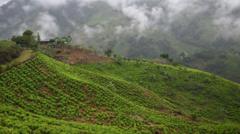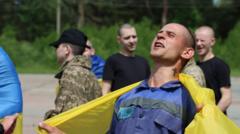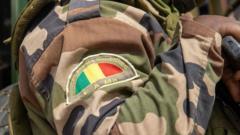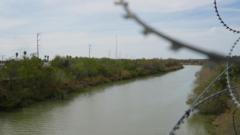In a coordinated military effort dubbed "Operation Justice," the Colombian army has freed 57 soldiers who were held captive by local residents in the mountainous Cauca region. The operation, which involved extensive reinforcement, resulted in 20 arrests and occurred without any shots being fired.
Military Operation Successfully Rescues 57 Colombian Soldiers From Captivity
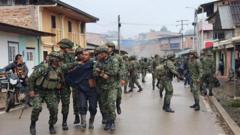
Military Operation Successfully Rescues 57 Colombian Soldiers From Captivity
Colombian authorities free troops held since the weekend by locals, as tensions persist in the cocaine-trafficking region of Cauca.
In the remote Cauca region of Colombia, the army has successfully executed "Operation Justice," liberating 57 soldiers who had been taken captive by local inhabitants. Defense Minister Pedro Sánchez confirmed the operation was completed without firing a single shot. The soldiers were reportedly seized after the arrest of a suspected member of the EMC rebel group, a notorious faction involved in cocaine production and trafficking.
Sánchez characterized the incident as a "kidnapping" orchestrated by the EMC, claiming that local residents acted under orders from the rebels. The military identified that the eleventh-hour arrest of the rebel suspect led to over 100 locals surrounding the soldiers as they prepared for an airlift.
In a concerning escalation, a second unit of soldiers was captured the following day by an even larger group. Unlike past events where locals would engage in negotiations with humanitarian organizations for a quick resolution, this time the captors refused to communicate with intermediaries, prompting the government to deploy additional military forces to the region.
After the successful rescue operation, which led to the arrest of 20 individuals, the region’s reliance on coca cultivation was highlighted, noting that over 90% of local residents depend on the coca crop, the raw material for cocaine, for their livelihoods. The deployment of government troops is often perceived as a direct threat to these residents, further complicating the already volatile conditions in an area plagued by armed groups engaged in illegal activities such as extortion and drug trafficking.
Sánchez characterized the incident as a "kidnapping" orchestrated by the EMC, claiming that local residents acted under orders from the rebels. The military identified that the eleventh-hour arrest of the rebel suspect led to over 100 locals surrounding the soldiers as they prepared for an airlift.
In a concerning escalation, a second unit of soldiers was captured the following day by an even larger group. Unlike past events where locals would engage in negotiations with humanitarian organizations for a quick resolution, this time the captors refused to communicate with intermediaries, prompting the government to deploy additional military forces to the region.
After the successful rescue operation, which led to the arrest of 20 individuals, the region’s reliance on coca cultivation was highlighted, noting that over 90% of local residents depend on the coca crop, the raw material for cocaine, for their livelihoods. The deployment of government troops is often perceived as a direct threat to these residents, further complicating the already volatile conditions in an area plagued by armed groups engaged in illegal activities such as extortion and drug trafficking.

